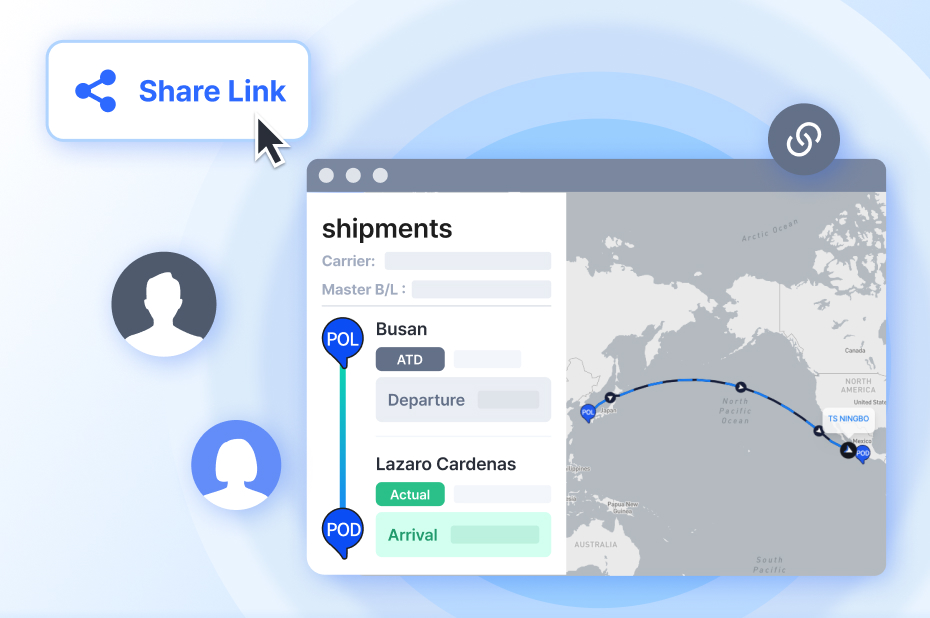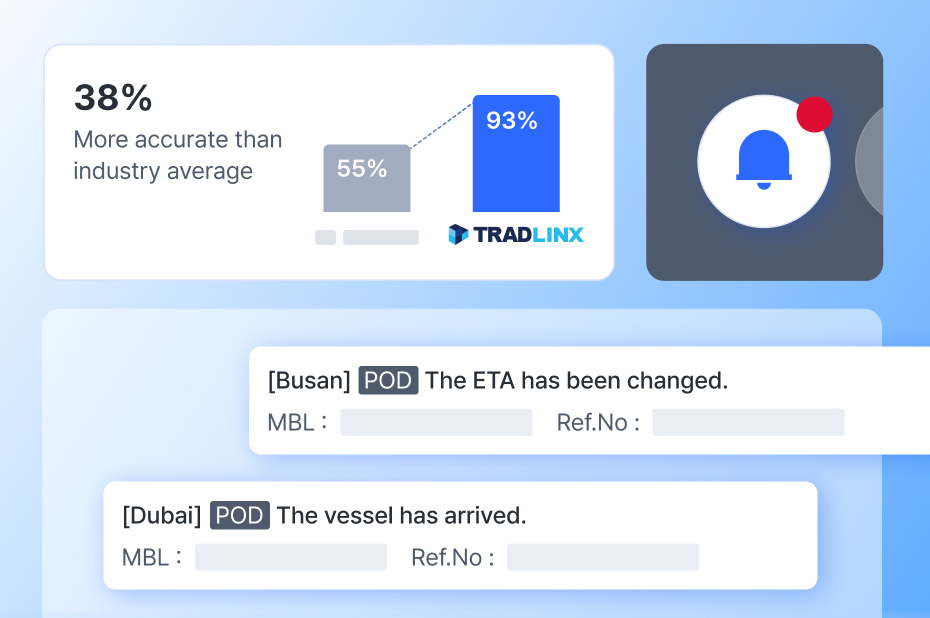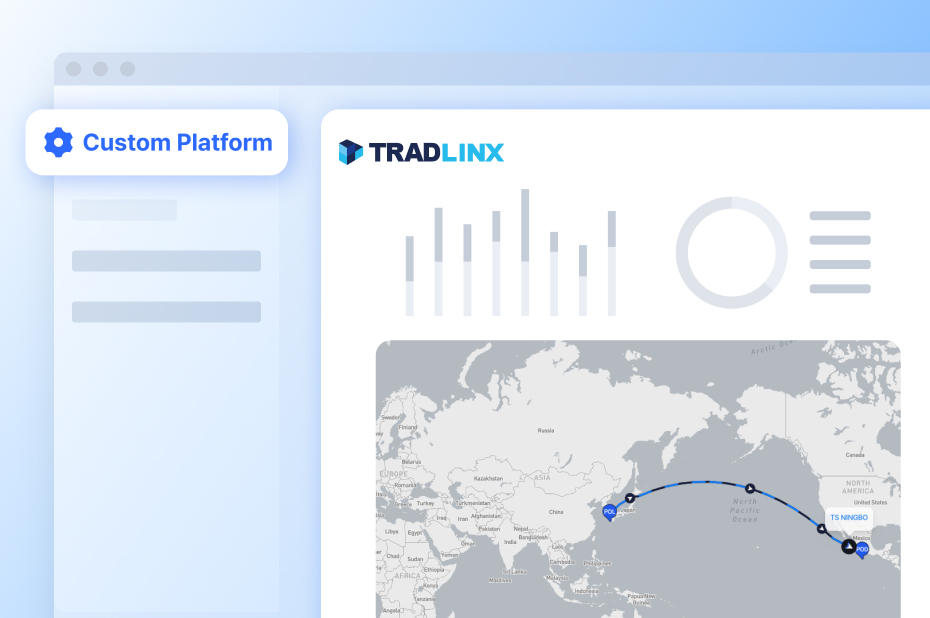Cut costs, maximize efficiency, seamlessly manage your supply chain with precision data.


“TRADLINX helped us reduce our shipment management time from hours to under a minute per B/L.
This real-time visibility has allowed us to respond faster to any changes,
improving our logistics efficiency and ensuring our customers receive timely updates.”


“For over 5 years, TRADLINX has supported us in delivering 99% data accuracy and hourly updates for Samsung’s Galaxy mobile device shipments. The branded portals and automated notifications have significantly reduced manual work, helping us ensure smooth global operations for Samsung.”


“Using TRADLINX’s real-time performance metrics and predictive timelines, we’ve improved our decision-making and efficiency. The data insights have allowed us to prevent delays and better manage carrier performance, ensuring smooth and cost-effective operations.”

From internal operations to customer experience, TRADLINX streamlines logistics across the board.
Cut manual processes by 50%, elevate partner collaboration, and deliver the real-time insights that keep your customers loyal.


Delays erode customer trust and directly impact your bottom line. With TRADLINX’s 24/7 tracking,
you eliminate uncertainty, keep operations on track, and retain loyal customers.
Loading feed...

Choosing the Right Ocean Freight Tracking Platform: A Smarter Way to Decide With dozens of platforms claiming real-time tracking, customizable alerts, and predictive analytics, finding the right ocean freight tracking software can be confusing. Even if you’ve read the comparison posts, translating feature checklists into clear decisions isn’t easy—especially if you’re choosing for your team, […]

Over 40% of West Coast container volumes could vanish post-August 2025, as tariffs prompt global carriers to reroute ships away from U.S. ports. With air cargo revenues projected to drop $22 billion and customs workloads tripling, freight forwarders and 3PLs must act now, before disruption becomes displacement.

As pharmaceutical companies face escalating tariff pressures, industry leaders like Johnson & Johnson and Merck are responding with bold reshoring investments, supplier diversification, and digital supply chain innovation. Discover how the sector is reengineering its logistics and manufacturing to safeguard supply chains, control costs, and maintain patient access.

Container ship fires are increasing in both frequency and severity, with one reported every 9 days in 2023. The Wan Hai 503 case highlights the fatal combination of outdated fire suppression systems, misdeclared dangerous goods, and legal loopholes around ports of refuge. For forwarders and LSPs, this isn’t just a maritime issue—it’s a direct operational and financial risk. This post unpacks key stats, structural gaps, legal failures, and what you should be doing now to protect your cargo and clients.